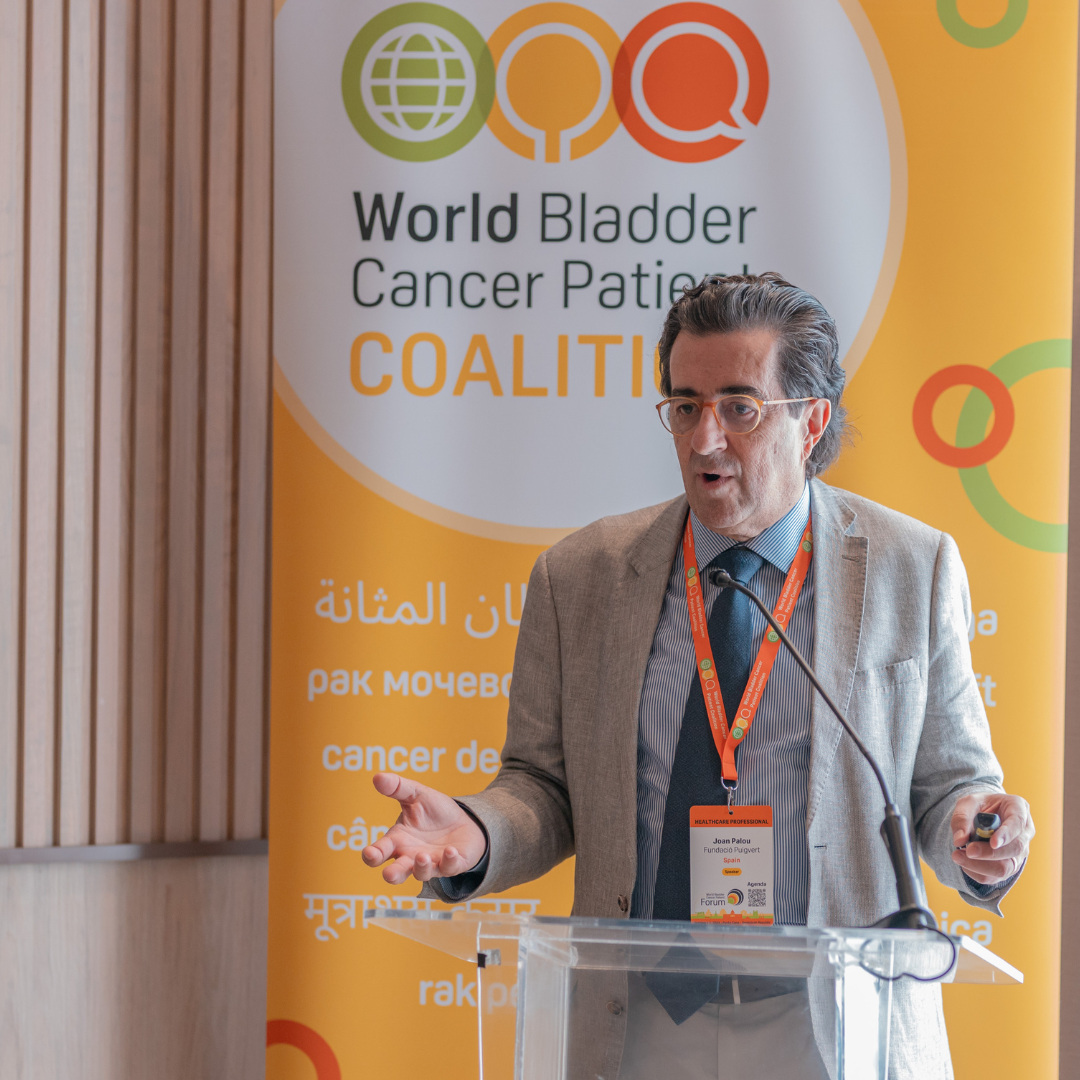Latest Research in Bladder Cancer
At the World Bladder Cancer Patient Forum 2024, Prof. Joan Palou, Chairman of the Urology Department at Fundació Puigvert in Barcelona, Spain, presented on the latest advances in bladder cancer research. Prof Palou’s Keynote presentation focused on how new treatments, better imaging methods, and innovative bladder preservation approaches are advancing bladder cancer treatment and care.
Prof. Palou began by discussing muscle-invasive bladder cancer (MIBC), explaining that even with aggressive treatments, about half of the patients still experience a return of the disease. In these cases, three-quarters develop distant metastases, where the cancer spreads beyond the bladder to other organs, complicating treatment. The remaining one-quarter face local recurrence, where the cancer returns in or near the bladder. These challenges highlight the need for new and improved treatments.
One promising approach Prof. Palou discussed was chemoresection, a type of intravesical therapy aimed at directly targeting bladder tumors. Unlike traditional intravesical chemotherapy, chemoresection involves using a specialised chemotherapy formulation to dissolve or “resect” bladder tumors, potentially offering a less invasive alternative to surgery for certain cases. Prof. Palou also mentioned ongoing research to enhance the effectiveness of intravesical immunotherapies, such as BCG, to improve patient outcomes.
Prof. Palou emphasised the role of new imaging technologies, like fluorescence cystoscopy (using a special dye to make cancer cells glow under blue light) and narrow-band imaging (using specific light to highlight abnormal areas). These methods have shown up to 95% accuracy in detecting bladder tumors, aiding their more complete removal and leading to better treatment outcomes.
The session also highlighted the importance of a team-based approach to treatment, combining surgery, chemotherapy, and radiotherapy. Prof. Palou shared updates from key trials, including the VESPER trial, which compares different chemotherapy regimens to determine the most effective approach for bladder cancer. He also discussed the NIAGARA trial, an innovative study exploring the use of immuno-oncology (IO) agents in combination with chemotherapy. This trial is investigating how adding an immunotherapy drug before and after surgery can enhance the body’s immune response, potentially reducing the likelihood of recurrence and improving survival rates for patients with muscle-invasive bladder cancer.
Looking ahead, Prof. Palou expressed hope that bladder cancer will become a more manageable condition with the help of personalised treatment plans and continued research. He called for more support for clinical trials, collaboration among specialists, and improved diagnostic tools to ensure better patient outcomes.
Watch Prof. Joan Palou’s full session, Latest Research and Innovation Developments in Bladder Cancer, on the WBCPC YouTube Channel.




